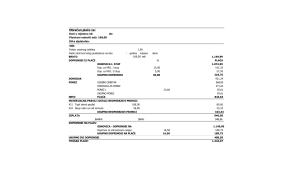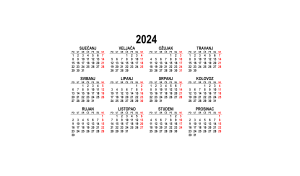Writing a resume is a demanding skill, and it is hard to find an example of a well-written resume is hard to find. We have previously written about the rules that should be followed when writing a resume and about things that do not belong in a resume. Here are the most common reasons why resumes end up in the figurative or literal trash can.
Upload your resume and find a new job with it!
Writing a resume results in an excessively long CV
Almost every guide to writing a resume states that the most common mistake when writing a resume is making it too long. A resume should ideally be one and a half to two pages long. Specialists in human resources cite several reasons why an example of a resume that is too long is a bad sign about a candidate:
“A resume that is longer than two pages is not only difficult to read, but also shows that the candidate does not know how to single out or emphasize the essentials. However, it is a very important skill for almost any occupation, and for some it is a key skill.“
“Sometimes we come across a ten-page resume that lists every job and describes it, without listing any work achievements. An example of a resume where this happens is with people who work in sales and richly describe every company they’ve worked for, but they don’t list anything about sales or client accomplishments. Such resumes often tend to describe companies at length, but not what the candidate himself did.“
“Sometimes we don’t receive a good CV but an autobiography in which the candidate describes his life chronologically, writing about his upbringing, family, children, hobbies and work. Candidates’ life stories can be interesting, but in the CV we want to see structured and only relevant information.“
“Sometimes we come across an example of a resume that is written as a composition, with very few paragraphs. Writing a resume implies breaking it down into structured entries. It is not up to us to distinguish the essentials in the resume ourselves.“
When writing a resume is copying
Resume writing guides often recommend that candidates shape their resume to reflect the requirements of the vacancy they are applying for. However, often people approach this thoughtlessly and just copy the job description from the ad into their resume, either under soft skills or under some previous experience. Experts in human resources recognize this very easily:
“When writing a resume, it happens that a candidate writes items from the job description into his resume. This is very easy to recognize and is a sign that the candidate is not only manipulative, but also incompetent. This is a very transparent tactic and we usually do not consider such a resume in detail.“
“It once happened that a candidate copied the job description from a similar advertisement into his resume under his last job. Even at first glance, the job descriptions were strangely worded, and by searching the Internet we easily determined that he copied the job description from one of the first results for a vacancy of the same name as our ad. We have not contacted him.”
Writing a resume with mistakes
Writing a CV is stressful and it is natural for many to make mistakes when writing it. But people reading resumes expect a candidate to be able to prepare two pages of text without obvious mistakes:
“A resume with errors speaks very poorly of the candidate. If someone is applying to be a copywriter and their resume has errors, they are clearly not a good or conscientious writer.“
“Many candidates state that they are detail-oriented, but at the same time submit a resume that contains errors. If they couldn’t make sure to prepare two error-free pages, then they certainly aren’t detail-oriented.“
Hasty resume writing
People sometimes send resumes that seem rushed to readers. This includes not only typos but also excessive use of unexplained abbreviations or capitalization of letters.
“When I see a resume full of capitalized words, I immediately want to close the document. Capitalization means yelling or anger, can’t you turn off CAPS LOCK?“
“It may be clear to the candidate’s colleagues what all the abbreviations mean, but not to the people working in the employment agency. Often different industries have the same abbreviations with different meanings, so a resume full of abbreviations can be difficult to understand even with the help of a search engine.”
“I think it’s unprofessional to submit a resume full of abbreviations. It’s the candidate’s responsibility to make sure the resume is as understandable as possible to the reader. If they don’t put the minimum effort into writing the resume, why should we put the effort into deciphering it when reading the resume?
Excessive number of certificates
When writing a CV, it is recommended to list additional qualifications. A more recent phenomenon in resumes is to list every course completed, even when they are not related to each other. In this case, as with work experience, it is most important to state only what is relevant for the applied position.
“Too many courses can confuse me. If someone is taking a bunch of unrelated things then they probably don’t know what they want from themselves and their career.”
“We look at additional courses as a continuation of the career. If it is not clear why the candidate needed that training, we want to know why he completed it. I automatically think that someone who is completing various courses for nothing is also working in the workplace.“
“We once received a sample resume for an engineering position that listed ancient history courses among the listed certifications. It’s nice for the candidate to have broad interests, but he could have left that out and just mentioned history as a hobby. Why would it be relevant to us for a manufacturing engineer position? has anyone been educated on the Greco-Persian Wars?“
Writing frivolous email addresses in the CV
Very often candidates apply using email addresses that are frivolous, rude, or vulgar. HR specialists may think that candidates do not know how to separate private and professional life and do not know business etiquette. Although there are professions where this is not important, in many office jobs it is expected that candidates know how to communicate professionally.
When writing your resume, you should therefore use a neutral email address, and this also applies to similar forms of contact, such as a Skype account. If candidates do not have an address that contains only their first and last name, then they should create an address that is closest to that form.
“When I communicate with a candidate, it is logical for me to correspond with that person, and not send messages to August Ceasar or Slippin’ Jimmy.”
“It’s easy to get a free email address these days. Someone who hasn’t invested a few minutes to create a decent email address probably doesn’t care about their professional image or doesn’t understand how their behavior affects others. This raises some alarms for me.”
“From time to time we receive messages from candidates who have appropriate email addresses, but their contact profile contains inappropriate pictures. Pictures of bare breasts or cans of alcohol belong on social dating networks, not in someone’s gmail address.”
Writing unnecessary information in resumes
Our CV writing guides have already mentioned that personal life information does not belong in them. However, people who work in human resources often encounter other unnecessary information, especially about previous jobs.
“One example of a resume that unpleasantly surprised me stated that the candidate is suing the previous employer for unpaid wages. It is possible that he wrote this in the resume out of anger, or perhaps as a warning to us that he will sue us if we offend him. We are very careful when hiring workers who they’re so open about their relationship with previous employers. After all, that’s just their side of the story, why should we automatically believe them?”
“One candidate wrote in her resume that she was ‘sabotaged’ at her previous job. We don’t know what that meant because we never invited her for an interview.”
Such additional information is interpreted by human resources specialists as writing a free flow of thoughts or not understanding what information is important about oneself.
Rudeness in CV writing
It seems a bit unbelievable, but sometimes in the selection you come across an example of a resume that is rudely written towards the reader. Rudeness or ultimatums in CVs automatically disqualify the candidate.
“One candidate for an IT position wrote in his resume that he does not want to be called by consultants and that he will only talk to the director. In IT, we often come across candidates who despise HR specialists, but this level of disrespect for others means that they will such a person to be vain in his communication with others.“
“An example of a CV that unpleasantly surprised us had at the beginning of the paragraph stating that he would not be called for an interview if the salary was not at least this and that amount. Although the salary was higher than the requested amount, we concluded that there is no point in meeting such a person when he so resolutely stipulates your interest in the selection process.”
Conclusion
When writing a resume, care should be taken to write only what will be relevant for the position, and not what the candidate thinks is relevant about him as a person. No one wants their resume to be known as a piece of work. There should be as little but important information as possible in the CV, rather than risking that attention is taken by the unimportant information.
Now that you know what doesn’t belong in your resume use it to find a new job!
Author: Goran Mihelčić





